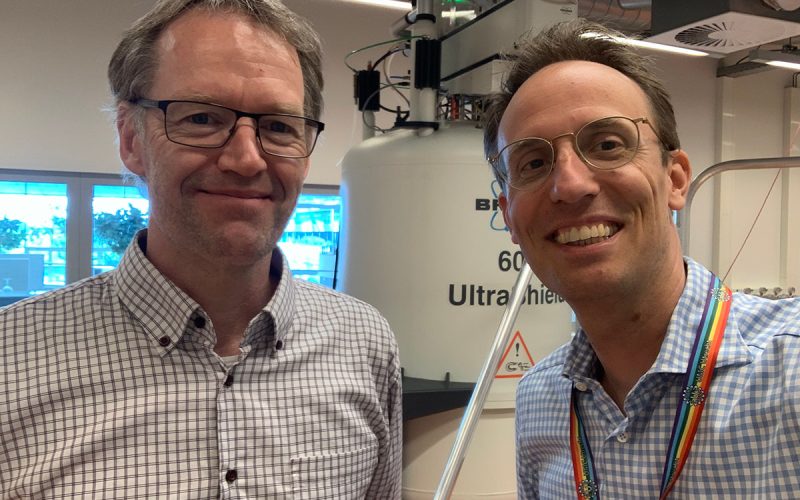NWO has awarded a €650,000 grant to Eduard van Beers, internist haematologist (UMC Utrecht) and Roland Pieters, professor of chemical biology and drug discovery (UU) for their research. Eduard van Beers and his team are investigating how to use biotechnology and AI to develop a new drug. They focus on patients with sickle cell disease, an inherited disease of the red blood cells.
In the Netherlands, about 2,000 people are diagnosed with sickle cell disease. Every year, 60 to 80 new patients are added. You are usually diagnosed when you are still a child. But it also happens that the disease is only discovered later in life. The most characteristic symptom of sickle cell disease is sudden attacks of pain. Many symptoms of sickle cell disease are related to anaemia caused by the disease. For example, you get fatigue, shortness of breath and/or dizziness. Sickle cell disease is hereditary and is difficult to cure.
Sickle cell disease is caused by abnormal red blood cells that deform or ‘sickle’ in an oxygen-deficient environment. These cells clog blood vessels and cause severe disease. We hypothesise that inhibition of piezo 1, a calcium channel, reduces calcium influx and subsequent sickling. The aim of this research is to develop a potent piezo1 inhibitor using biotechnology and artificial intelligence. This will allow people with sickle cell disease to be treated more effectively. UMC Utrecht is not doing this research alone, But together with Utrecht University.
Eduard van Beers: ‘What we will do in a few weeks using AI and the latest biotechnology, used to take years.’ On the application of biotechnology and AI, he says: ‘We will use the latest biotechnology to screen millions of compounds, and we will optimise compounds using self-developed AI-driven computational chemistry and Google’s AlphaFold’. To accelerate the step from discovery to application, the researchers are also using existing biobanks and patient material to test their findings. This provides opportunities to improve the management of sickle cell disease in the future.
NWO promotes world-class scientific research. This research has scientific and societal impact. The Open Technology Programme provides funding for application-oriented technical-scientific research that is free and unfettered and unencumbered by disciplinary boundaries. The programme offers companies and other organisations a way to join scientific research that leads to scientific impact.
